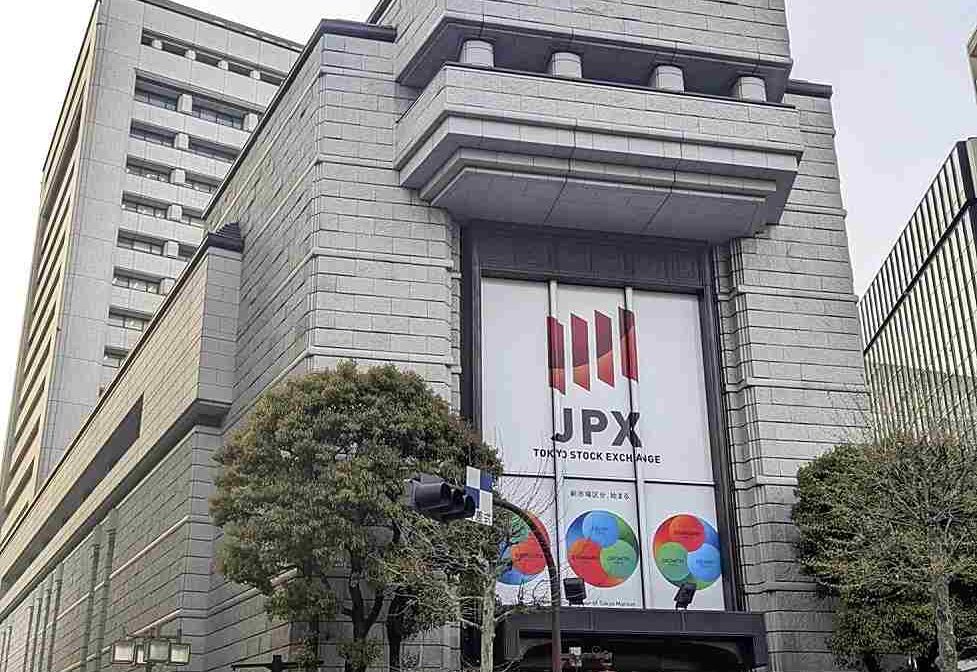
Tokyo Stock Exchange
11:07 JST, August 26, 2024 (updated at 15:30 JST)
TOKYO (Reuters) – Japan’s Nikkei share average declined on Monday after two straight sessions of gains, as exporters’ stocks, including chip-related and auto firms, were pressured by a stronger yen.
The Nikkei fell 0.66% to close at 38,110.22, although recovering from a decline of 1.4% earlier in the session.
“In addition to the yen’s strength, there are some factors that make investors hesitant to make positive bets. In a very short term, that’s Nvidia’s outlook this week,” said Shuutarou Yasuda, a market analyst at Tokai Tokyo Intelligence Laboratory.
Nvidia’s blistering run has powered equity markets throughout 2024, and its earnings and forecast later this week could be a key inflection point for market sentiment heading into what is historically a volatile time of the year.
The yen rose to a three-week high against the dollar, as U.S. Federal Reserve Chair Jerome Powell’s dovish shift contrasted sharply with Bank of Japan chief Kazuo Ueda’s steadfastly hawkish tone.
“Fed rate cuts are positive for stocks but those are already priced in, while the BOJ is trying to raise rates from now. The gap in their policies weighs on the stock market,” Yasuda said.
Ueda on Friday reaffirmed his resolve to raise rates if inflation stayed on course to sustainably hit the 2% target, suggesting recent market volatility would not derail the long-term rate hike plan.
Heavyweight chip-related shares fell, despite a 2.79% gain in the U.S. semiconductor index on Friday. Advantest and Tokyo Electron slipping 2.51% and 2.43%, respectively.
Auto fell 2.87% to become the worst performing sector among the Tokyo Stock Exchange’s 33 industry sub-indexes.
The yen and stocks typically move in opposite directions, since a stronger domestic currency hurts exporters’ competitiveness and also makes stocks more expensive for foreigners.
The broader Topix fell 0.87% to 2,661.41, with Toyota Motor declining 3.15% to drag the index the most.
Nitori Holdings rose 3.95% on expectations that a stronger yen would lift the outlook for the furniture and kitchen goods retailer, which relies heavily on imports for materials for its products.
Top Articles in News Services
-

Survey Shows False Election Info Perceived as True
-

Hong Kong Ex-Publisher Jimmy Lai’s Sentence Raises International Outcry as China Defends It
-

Japan’s Nikkei Stock Average Touches 58,000 as Yen, Jgbs Rally on Election Fallout (UPDATE 1)
-

Japan’s Nikkei Stock Average Falls as US-Iran Tensions Unsettle Investors (UPDATE 1)
-

Trump Names Former Federal Reserve Governor Warsh as the Next Fed Chair, Replacing Powell
JN ACCESS RANKING
-

Producer Behind Pop Group XG Arrested for Cocaine Possession
-

Japan PM Takaichi’s Cabinet Resigns en Masse
-

Man Infected with Measles Reportedly Dined at Restaurant in Tokyo Station
-

Israeli Ambassador to Japan Speaks about Japan’s Role in the Reconstruction of Gaza
-

Videos Plagiarized, Reposted with False Subtitles Claiming ‘Ryukyu Belongs to China’; Anti-China False Information Also Posted in Japan























